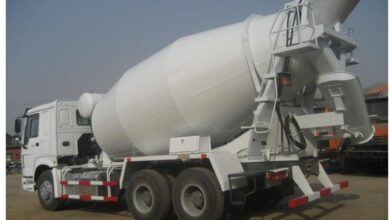What are Some Innovative Business Ideas For Entrepreneurs in 2023

Innovation allows businesses to develop unique and distinctive offerings that set them apart from their competition. By introducing new and innovative idea for business services, or business models, companies can differentiate themselves and attract customers who are seeking something fresh and exciting. This competitive advantage can help businesses capture market share and establish themselves as leaders in their industry.
Why Do You Need Innovation In Your Business Startup Idea
Here are three reasons innovation is crucial for your business:
It improves operational efficiency:
Innovation can lead to improved processes and technologies that enhance operational efficiency. By identifying inefficiencies and finding innovative solutions to streamline operations, businesses can reduce costs, increase productivity, and deliver better products or services to their customers.
It meets evolving customer needs:
Customer preferences and needs are constantly changing, and businesses must adapt to stay relevant. Innovation allows companies to identify and address these evolving customer needs by developing new products or modifying existing offerings.
It attracts and retains talent:
Innovation is often associated with a dynamic and forward-thinking work environment. By fostering a culture of innovation, businesses can attract top talent who are motivated by the opportunity to work on cutting-edge projects.
What are Some Innovative Ideas for Business Startups
We will now look at innovative business ideas that are ideal in 2023.
Also Read: How to Start a Business and Be Successful
Sustainable and Eco-Friendly Solutions
Startups focusing on sustainable and eco-friendly solutions aim to address environmental challenges and promote a greener future. These ventures may involve developing renewable energy technologies, offering recycling and waste management services, or promoting energy-efficient practices.
Blockchain Technology and Cryptocurrency Services:
Startups exploring blockchain technology and cryptocurrency services aim to revolutionize traditional industries such as finance, supply chain, and healthcare. These ventures may develop blockchain-based payment systems, decentralized applications (DApps), or platforms for secure and transparent data storage.
Personalized Health and Wellness Solutions:
Startups in the personalized health and wellness space focus on individualized approaches to healthcare and well-being. These ventures may develop wearable devices for tracking health metrics, offer personalized nutrition and fitness plans, or provide telehealth services for remote consultations.
Smart Home and Internet of Things (IoT) Devices:
Startups in the smart home and IoT sector create innovative devices and systems that enhance home automation and connectivity. These ventures may develop smart thermostats, home security systems, or voice-activated assistants. By integrating IoT technologies, these startups enable homeowners to control and monitor various aspects of their homes, improving energy efficiency, convenience, and security.
FoodTech and Alternative Protein Products:
Startups in the FoodTech industry focus on transforming the way we produce, distribute, and consume food. These ventures may develop plant-based meat alternatives, vertical farming technologies, or food delivery platforms. By promoting sustainable and innovative approaches to food production, these startups address issues such as food security, environmental impact, and changing dietary preferences.
EdTech and Online Learning Platforms:
Startups in the EdTech space leverage technology to revolutionize education and make learning more accessible. These ventures may develop online learning platforms, virtual classrooms, or educational apps. By providing flexible and personalized learning experiences, these startups empower students of all ages to acquire new skills, gain knowledge, and pursue lifelong learning.
Personalized E-commerce Experiences:
Startups in the personalized e-commerce space aim to enhance the online shopping experience by tailoring it to individual preferences and needs. These ventures may develop recommendation algorithms, virtual try-on technologies, or personalized product curation platforms. By offering personalized recommendations, virtual experiences, and convenient purchasing options, these startups create a more engaging and satisfying e-commerce journey for customers.
Mobility-as-a-Service (MaaS) and Transportation Innovations:
Startups focusing on mobility-as-a-service and transportation innovations aim to transform the way people move from one place to another. These ventures may develop ride-sharingplatforms, electric vehicle charging infrastructure, or autonomous vehicle technologies. By providing convenient, sustainable, and efficient transportation options, these startups contribute to reducing traffic congestion, lowering emissions, and improving urban mobility.
Remote Work and Collaboration Tools:
Startups in the remote work and collaboration space develop tools and platforms that facilitate remote work, virtual meetings, and team collaboration. These ventures may offer video conferencing software, project management platforms, or virtual workspace solutions. By enabling seamless communication and collaboration regardless of location, these startups empower individuals and teams to work efficiently and effectively in distributed environments.
Robotics and Automation Solutions:
Startups in the robotics and automation field create innovative technologies that automate repetitive tasks and enhance productivity. These ventures may develop robotic process automation systems, autonomous drones, or robotic assistants for various industries. By harnessing robotics and automation, these startups streamline operations, reduce costs, and improve efficiency in manufacturing, logistics, healthcare, and more.
Sustainable Fashion and Ethical Clothing Brands:
Startups in the sustainable fashion industry focus on creating environmentally friendly and ethically produced clothing and accessories. These ventures may develop clothing made from sustainable materials, implement fair trade practices, or promote circular fashion concepts. By addressing the negative impacts of the fashion industry, such as waste and exploitation, these startups offer conscious consumers more sustainable and ethical options.
Financial Technology (FinTech) Services:
Startups in the FinTech sector leverage technology to disrupt traditional financial services and improve financial inclusion. These ventures may offer digital payment solutions, peer-to-peer lending platforms, or robo-advisory services. By providing convenient and accessible financial services, these startups empower individuals and businesses to manage their finances more effectively, promote financial literacy, and bridge gaps in financial services.
Personalized Travel and Tourism Experiences:
Startups in the personalized travel and tourism space create innovative solutions that cater to individual preferences and enhance travel experiences. These ventures may develop travel recommendation platforms, immersive travel planning tools, or customized tour services. By offering personalized itineraries, unique experiences, and local insights, these startups enable travelers to create memorable and tailored journeys.
Telehealth and Remote Healthcare Services:
Startups in the telehealth and remote healthcare sector leverage technology to provide healthcare services remotely. These ventures may offer telemedicine platforms, remote monitoring devices, or digital health apps. By connecting patients with healthcare professionals from anywhere, these startups improve access to healthcare, enhance patient outcomes, and reduce healthcare costs.
Sustainable Agriculture and Urban Farming Initiatives:
Startups focusing on sustainable agriculture and urban farming aim to address food production challenges and promote local, sustainable food systems. These ventures may develop vertical farming technologies, urban rooftop gardens, or farm-to-table delivery services. By promoting resource-efficient farming practices, reducing food miles, and increasing access to fresh produce, these startups contribute to food security, environmental sustainability, and healthier communities.
For more innovative business ideas for startups with a proven working model, read this article.



